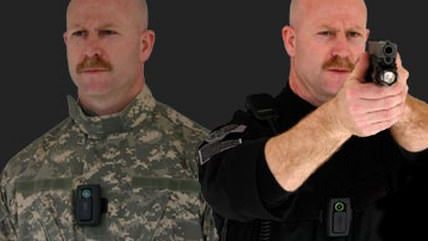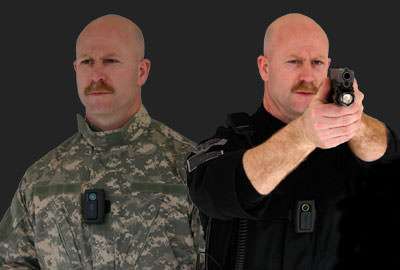Body Cameras for Police Are a Powerful Tool, Not a Cure-All


Eric Garner's choking death at the hands of New York City police was filmed. Yet the public distribution of the video was not enough to secure an indictment against Officer Daniel Pantaleo. The result has led to concerns that maybe mounting cameras on police is not going to be the fix some people think it is. Here's what Nia-Malika Henderson at The Washington Post had to say about it and President Barack Obama's push for funding for more body cameras for police:
The use of body cameras by police officers could certainly make them police themselves more and have the same effect on people they interact with. But they don't seem to have increased the chances of discipline when it comes to Garner, whose death was ruled a homicide.
New York City Mayor Bill de Blasio (D) said that he plans to request federal funding for body cameras. It's unclear whether Obama, who has made the most high-profile push for body cameras, will get congressional support for his proposal.
But the videotaped death of Garner and the failure to get an indictment will likely be used by activists to push for much more than just cameras.
Henderson notes the heavily distributed statistics from Rialto, California, after they fitted their officers with body cameras two years ago. Incidences of use of force by police and complaints against police plunged the year after they were put into use. Nevertheless that filming of abuse didn't help in Garner's case (nor did it help in Kelly Thomas' case) and that police may turn them off or try to shield video from public access has introduced a "Is the case for body cameras now damaged?" narrative—and some frustrated tweets.
But that question really only makes sense if you confuse tools for solutions and transparency for accountability. No, having visual documentation of police misbehavior won't guarantee the officer in question will be punished. But there is no technology that will guarantee that outcome. Even Minority Report-style psychic powers or precognition skills could not guarantee that a police officer will be punished for injustices. All the tools provide is information. The only way police will be held responsible for misbehavior will be through the actions of actual human beings, through whatever system of judgment we use. No technology can make people hold others in position of power responsible.
By the same token, transparency is not the same as accountability; rather it is a mechanism used to get the information to hold people accountable. Even if the Obama Administration's claims to be the "most transparent administration ever" weren't a massive, absurd lie, the failure of the administration to hold its people responsible for the poor conduct or incompetence that we do know of is a reminder that "transparency," like a body camera, is a tool, not a solution.
Two other thoughts, both fairly obvious: It's going to be impossible to document the abuse that doesn't happen because of the existence of body cameras, thus the emphasis on those statistics from Rialto. Pointing to one or two cases where police abuse was filmed and not punished as an indictment and denial of all the other benefits is not logical or well thought-out (and I've succumbed to such responses myself in the Thomas case). If one of the goals is to discourage bad behavior from the police (and citizens they're interacting with), we need to focus on those statistics, not point to individual cases and then throw our hands up in the air about it. If body cameras result in fewer cases of police abuse it is an undeniable good, even if filming didn't help Garner or bring the officer to justice.
Second, consider the difference in responses to the grand jury verdict in Garner's case compared to many other cases of police killing unarmed citizens that weren't caught on film. How much coverage have all those other cases gotten in comparison? Would Attorney General Eric Holder come out and give a speech promising a federal investigation if Garner's death hadn't been caught on film? Would there even be a federal investigation if not for the video? How much different would the protests had been and how much coverage would they have gotten if Garner's death hadn't been caught on film? Now imagine what could potentially happen culturally if every single fatal police encounter (remember, there were more than 400 last year) was caught on film and shown to the public. It's easy to say that the trend of police protection will continue because that's how it's been for decades, but look at the responses to the grand jury decision. The typical liberal-conservative divide on police authority is just not there (not as pronounced anyway). This would not be happening if not for video. Reforming police behavior is going to be slow. Very, very slow. But given the amount of power and discretion both civic leaders and the courts have given police, it won't happen at all without the assistance of transparency provided by body cameras.
Free Minds and Free Markets aren't free! Support Reason's annual Webathon with a tax-deductible donation and help change the world in a libertarian direction. For details on giving levels and swag, go here now.


Show Comments (92)